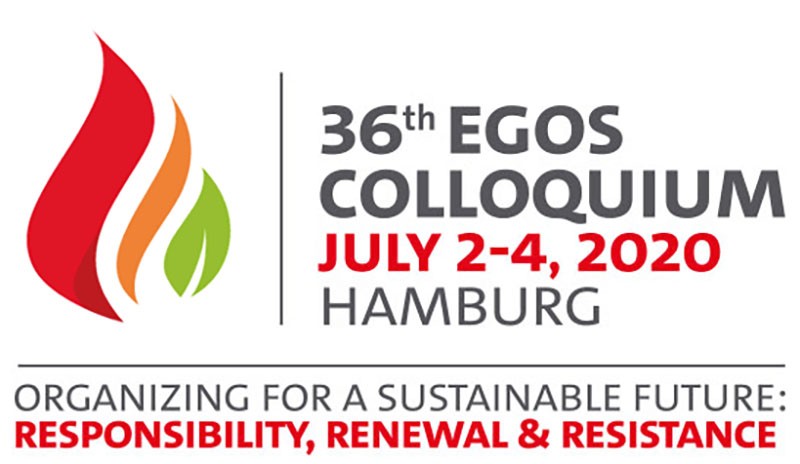Sub-Plenary 2-2
Inclusive Organizing in the Anthropocene: From Sustainability to Circularity to Degrowth
Steffen Böhm, University of Exeter, United Kingdom
Alison Stowell, Lancaster University, United Kingdom
Panelists:
Andrea Brown, Quadia, Switzerland
Karim Saagbul, Workers Organizer Consultant, Ghana
This sub-plenary will explore where organizations and organization studies need to go to address the global challenges associated
with the era that has been called the ‘Anthropocene’. This includes the critical questioning of the responses given by organizations
to ecological, economic and other social challenges in the Anthropocene, such as global warming, ecosystems destruction, global
social inequalities, plastic littering of the oceans, fresh water shortage, limits of planetary and social boundaries, etc.
While (corporate) sustainability has been the bedrock of how private, public and non-profit organizations have responded to
these challenges for the past 25 years or more, they have not always had the desired outcomes (to say the least).
Recently, the Circular Economy approach has become popular, offering organizations a tool for more radical systems redesign
and transition towards a more sustainable world. Chinese and European governments, the Ellen MacArthur Foundation, Circle
Economy and others have championed the Circular Economy. Is this new approach radical enough to tackle the global challenges
we face today, or is this the latest attempt of a dying, linear system to rescue itself?
Isn’t the elephant in the room of the current debates on sustainability and circularity the question of growth itself? It
strikes us that if sustainability and circularity approaches are simply seen as tools to prolong a perpetual cycle of economic
growth, then they will fail. If this is so, what is the role of organization studies in an era of degrowth? How does the field
need to be repositioned to respond to the global challenges of not just today but future generations? Will our field be simply
there to organize the perpetual decline of disaster capitalism, or can it contribute to alternative futures that are just,
sustainable and resilient? It is these questions this sub-plenary will explore, which are of particular importance and relevance
in the current global Covid-19 pandemic.
Steffen Böhm is Professor in Organisation & Sustainability in the Department for Sustainable Futures at the University of Exeter Business
School, United Kingdom. His research focuses on political economy, and ecology, and justice of the food-energy-water-climate-land-labour
nexus. Since his PhD at Warwick, Steffen has been interested in critical and interdisciplinary perspectives of organizing,
understood as a broader social, economic and political process; and since a study trip to South America in 2006, he has extended
his research interests to include ecological aspects of organizing. More recently, he got interested in the circular economy
as a systems approach that proposes radically new ways of organizing business–society–nature relations. Steffen has published
in Ephemera (which he co-founded), Organization, Organization Studies, Environment and Planning A, The Sociological Review, Carbon Management, Journal of Business
Ethics, Discourse & Society, Climate Policy, Business Ethics: A European Review, Revista de Administração de Empresas, and more.
Alison Stowell is a Lecturer at Lancaster University, United Kingdom, and Associate Director of the Pentland Centre for Sustainability in
Business Research Centre. Her research focuses on social and organizational responses to the challenges of waste. Specific
areas of interest include organisation and management responses, waste policy, negotiating values attributed to waste and
waste as a particular type of work. Although, for the past ten years her preoccupation has focused on electronic waste (e-waste
e.g. computers, laptops, mobile telephones, etc.), her curiosity relates to most forms. She has published articles in Organization Studies, New Technology, Work and Employment, Society and Business, Etnografia e Ricera Qualitativa, Meiji Business
Review, and Systemist.
Andrea Brown is Global Sustainability Director at LyondellBasell, who are one of the largest plastics, chemicals and refining companies
in the world. Prior to joining LyondellBasell, she worked at Quadi as the Impact Strategy Director providing equity and debt
financing to companies helping to create a crucial and regenerative economy. And at the World Business Council for Sustainable
Development (WBCSD) as the Director of the Circular Economy team and was heavily engaged with creating the Greenhouse Gas
Protocol (WBCSD).
Karim Saagbul is Workers Organizer consultant in Accra, Ghana. He works with the informal sector, where he is engaged with projects that
empower women in waste (WIEGO – MIT Pick-It!), and with the waste pickers at Kpone landfill site (Global Alliance of Waste Pickers). Committed to supporting the workers’ rights, Karim is currently heavily involved in setting
up pension schemes for them.


